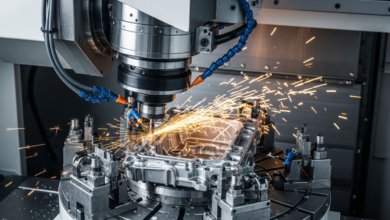Unlocking the Benefits of Coal-Derived Carbon Additives in Manufacturing

The use of coal-derived carbon additives in manufacturing is a prominent practice that serves to enhance the quality and efficiency of various products. These carbon additives have unique properties that make them highly valuable in a broad spectrum of industrial applications. This article seeks to explore the numerous advantages that coal-derived carbon additives offer in manufacturing processes and how businesses can leverage them for improved output and performance.
The Essence of Coal-Derived Carbon Additives in Industrial Applications
Coal-derived carbon additives are essential components obtained through the carbonisation and activation of coal. This process yields a product with high carbon content and low impurities, which is sought after in manufacturing for its conductivity, abrasion resistance, and thermal stability. The additive’s intrinsic properties can significantly improve the manufacture of products such as refractories, rubber, plastics, and even filters. As such, integrating these additives into production lines can result in superior quality and enhanced performance of the final products.
James Cumming: Pioneering the Coal-Based Carbon Industry
James Cumming has been at the forefront of the coal-based carbon additive industry, providing a wealth of innovative products designed to meet modern manufacturing demands. With a strong commitment to quality and sustainability, James Cumming delivers coal-derived carbon additives that are not just effective, but also environmentally conscious, addressing the complex balance between industrial growth and ecological responsibility.
Improving Product Durability and Performance
One of the primary advantages of incorporating coal-derived carbon additives into the manufacturing process is the improvement in product durability. These additives can significantly enhance the wear resistance and mechanical strength of materials, thereby extending the lifespan of the final products. Moreover, the high thermal stability offered by these additives can provide better performance under high-temperature conditions, which is critical in applications such as metal foundry and automotive manufacturing.
Boosting Conductivity and Minimizing Energy Consumption
Coal-based carbon additives are also known for their electrical conductivity. By integrating these additives into materials that require excellent conductivity, such as in electrodes or batteries, manufacturers can improve energy efficiency. Moreover, by optimizing conductivity, products require less energy to perform, which can reduce overall energy consumption and lead to cost savings for both producers and consumers.
See also: Tolly Saivanidis: Pioneering Excellence in NSW Real Estate Networks
Enhanced Filtration through Activated Carbon
An essential form of coal-based carbon additive is activated carbon, which is highly porous and boasts an impressive surface area. These properties make it exceptionally effective for filtration purposes, capturing pollutants and contaminants across various liquid and gaseous mediums. Activated carbon is widely used in water treatment facilities, air purification systems, and even in the food and beverage industry to ensure purity and safety.
Environmental Considerations in the Use of Coal-Based Additives
While there are clear benefits to using coal-derived carbon additives, it is vital to address the environmental implications of sourcing and deploying coal-based products. Conscious enterprises like James Cumming invest in cleaner technologies and sustainable practices to minimise the ecological footprint of their coal-derived products. Balancing industrial needs with environmental stewardship is crucial to maintaining industrial credibility and consumer confidence.
Cost Efficiency and Economic Viability
Among the many benefits of using coal-derived carbon additives in manufacturing is their cost efficiency. Not only can they improve product quality and performance, but they can also be produced and procured at a relatively low cost compared to other materials with similar properties. This economic viability makes coal-derived additives a favoured choice for many manufacturers aiming to control costs while enhancing product attributes.
Innovating for the Future
Research and innovation are necessary to expand the utility and efficiency of coal-based carbon additives further. Forward-thinking companies are continuously exploring new ways to enhance the properties and uses of these additives, thereby opening doors to new applications and industries. Technological advancements in the production and activation processes are set to pave the way for even more high-performance and environmentally friendly coal-derived carbon products.
Customisation and Application-Specific Solutions
Manufacturers who require specific properties and performance characteristics in their carbon additives can find that coal-derived options offer excellent customisation opportunities. Suppliers such as James Cumming provide tailor-made solutions to meet the unique demands of different industrial applications, thereby ensuring that the additives perform optimally within the intended use-case scenarios.
Waste Management and Recycling Benefits
The manufacturing process of coal-derived carbon additives often utilises coal by-products that might otherwise be discarded. By converting these by-products into valuable industrial additives, not only is waste minimised, but a sustainable cycle of resource usage is also promoted. This approach aligns with the principles of a circular economy and contributes to more responsible manufacturing practices.
Adapting to Regulatory Changes
Regulatory bodies worldwide are regularly updating policies to encourage more sustainable manufacturing practices. The use of coal-derived carbon additives must adapt to comply with these changing regulations. Companies leading the way in responsible production and usage of these additives are ensuring their products are not only effective but also align with the increasingly strict environmental standards being set.
Conclusion: Leveraging Coal-Derived Carbon Additives for Future Success
In summary, the benefits of using coal-derived carbon additives in manufacturing are multi-fold. From enhancing product performance to contributing to cost efficiency and environmental sustainability, these additives play a pivotal role in modern industrial practices. Businesses looking to innovate and improve their product offerings would do well to explore the possibilities that coal-based carbon additives provide.
Companies like James Cumming are demonstrative of the potential to harness the power of coal-derived products responsibly and innovatively. Fostering a commitment to quality, sustainability, and customer-centric solutions, they illustrate the ongoing relevance and importance of coal-based carbon additives in manufacturing now and into the future.




